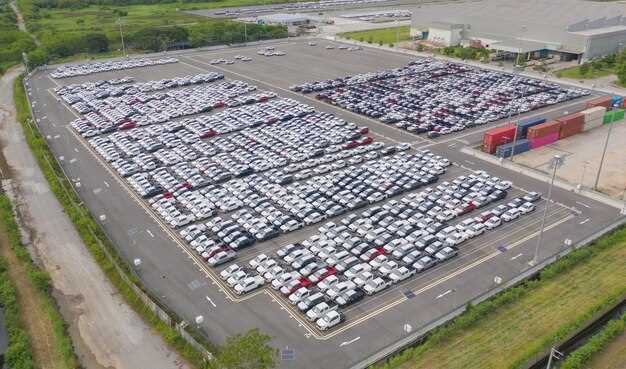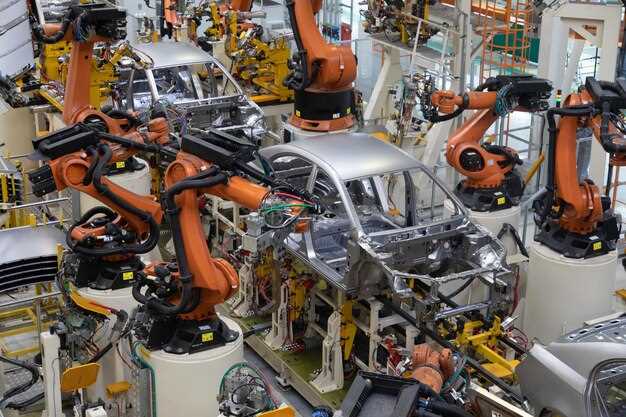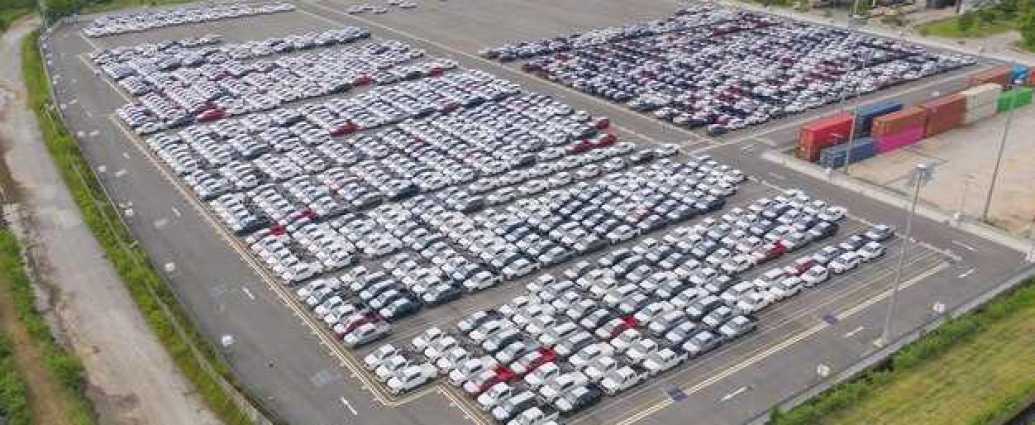
The rapid advancement of electric vehicle (EV) technology has reshaped the automotive industry, leading to significant shifts in the global supply chain. At the heart of this transformation are Chinese automakers, whose influence has become increasingly pronounced in recent years. The combination of production capabilities, strategic investments, and innovative approaches has enabled these manufacturers to emerge as key players in the EV landscape.
As the demand for electric vehicles escalates globally, the role of Chinese automakers in the supply chain cannot be overstated. They have not only contributed to the production of EVs but have also redefined the dynamics of sourcing critical materials and components necessary for battery manufacturing. Their involvement has led to the establishment of a robust chain that supports both local and international markets.
Moreover, the strategic positioning of Chinese companies within the global EV supply chain fosters competitive advantages, allowing them to dominate critical segments such as battery production and technology development. This article aims to delve into the various dimensions of Chinese automaker influence on the global EV supply chain, highlighting the implications for industry stakeholders and the future of sustainable transportation.
Key Roles of Chinese Manufacturers in Battery Production
Chinese manufacturers play a pivotal role in the production of batteries for electric vehicles (EVs), significantly influencing the global supply chain. The country is home to some of the largest battery producers, which have established a strong foothold in the market through advanced technological capabilities and economies of scale.
China dominates the production of lithium-ion batteries, essential for powering EVs. Companies like CATL and BYD are leaders in this sector, supplying a vast array of battery types to various automakers worldwide. Their ability to manufacture large quantities of high-quality batteries at competitive prices has made them preferred partners for both domestic and international car manufacturers.
Moreover, Chinese manufacturers have invested heavily in research and development, focusing on improving battery efficiency, energy density, and sustainability. This investment has led to innovations such as solid-state batteries and enhanced recycling processes, which are crucial for meeting the increasing demand for sustainable EV solutions.
The strategic position of China in the mining and processing of key raw materials, including lithium, cobalt, and nickel, further strengthens its role in the global battery supply chain. By controlling the supply of these essential materials, Chinese manufacturers can secure their production lines and reduce dependency on foreign sources, thereby stabilizing their market presence.
Collaboration between Chinese battery producers and automotive manufacturers also plays a significant role in shaping the EV landscape. Partnerships and joint ventures have emerged, enabling the sharing of expertise and accelerating the deployment of innovative battery technologies across the globe. This interconnectedness is essential for meeting the rising global demand for electric vehicles.
In conclusion, the impact of Chinese manufacturers on battery production for EVs is profound. Their technological advancements, production capabilities, and strategic control of raw material supply chains position them as key players in the evolving landscape of electric mobility, ultimately influencing the future of sustainable transportation worldwide.
Impact of Chinese Supply Chain on Global EV Market Dynamics

The Chinese supply chain plays a pivotal role in the global electric vehicle (EV) market, influencing various aspects of production and manufacturing. As the world’s largest producer of EVs, China has developed a comprehensive ecosystem that encompasses everything from raw materials to advanced battery technologies. This extensive network not only reduces costs but also accelerates the pace of innovation in the industry.
Chinese manufacturers dominate the production of key components such as lithium-ion batteries, which are essential for EVs. With significant investments in both local and international mining operations, Chinese companies secure access to vital resources like lithium, cobalt, and nickel. This vertical integration grants them a competitive edge and allows them to dictate terms within the supply chain.
A substantial portion of the world’s battery production occurs in China, making it a crucial node in the EV supply chain. The rapid advancements in battery technology, driven by Chinese firms, have resulted in improved energy densities and reduced costs, facilitating wider adoption of electric vehicles globally. Consequently, car manufacturers outside China often rely on these components to meet demand and remain competitive.
Moreover, the Chinese government’s proactive policies and incentives have fostered a robust domestic market that encourages production efficiency and innovation. National support has led to the establishment of manufacturing facilities and research institutions that further enhance the capabilities of the supply chain. As a result, global automakers looking to penetrate the EV market increasingly find themselves dependent on Chinese partnerships and resources.
However, reliance on the Chinese supply chain poses challenges such as geopolitical tensions and potential supply disruptions. These factors compel international manufacturers to reconsider their strategies, prompting some to diversify their supply chains or invest in local production capabilities. In response, many companies are exploring alternative sources for critical materials and seeking to establish more resilient networks.
In summary, the impact of the Chinese supply chain on global EV market dynamics cannot be overstated. It shapes production strategies, dictates pricing models, and influences technological advancements. As the EV market continues to evolve, understanding and navigating the intricacies of this supply chain will be crucial for stakeholders aiming to succeed in the competitive landscape.
Strategies for Western Automakers in Navigating Chinese Supply Networks

As the global electric vehicle (EV) market evolves, Western automakers face significant challenges and opportunities posed by the rising influence of Chinese supply chains. To thrive in this environment, they must adopt strategic approaches that enhance their competitiveness and reduce dependency on any single source.
Diversification of Supply Sources is essential. Western manufacturers need to broaden their supply chains by identifying alternative suppliers, both within and outside China. This minimizes risk associated with geopolitical tensions and potential supply disruptions. Collaboration with Asian suppliers who can deliver critical components, such as batteries and semiconductors, is crucial for maintaining production continuity.
Investing in Local Production capabilities can also provide a competitive edge. Establishing manufacturing facilities in key markets allows automakers to respond swiftly to regional demand while mitigating the risks of international shipping delays. Local production not only reduces lead times but also enhances the ability to customize offerings based on market preferences.
Building Strategic Partnerships with Chinese firms can facilitate access to advanced technologies and expertise. Collaborations can lead to joint ventures that enhance research and development power while sharing risks associated with new automotive innovations. Such partnerships can bridge gaps in knowledge regarding local market dynamics and consumer preferences.
Utilization of Digital Tools in supply chain management is vital for optimizing operations. Advanced data analytics and AI-driven solutions can improve decision-making processes, ensuring that Western automakers are agile in their supply chain responses. Monitoring global trends and real-time data can help anticipate shifts in the Chinese market and enable quick adaptation.
Increasing Transparency in supply chain practices is critical. By fostering a culture of openness, automakers can build trust with stakeholders and address concerns related to ethical sourcing and sustainability. Transparent supply chains can enhance brand trust and customer loyalty, important factors in the competitive EV landscape.
In conclusion, navigating the complexities of Chinese supply networks requires a multifaceted strategy. Western automakers must focus on diversification, local production, strategic partnerships, digitalization, and transparency to effectively compete and thrive in the rapidly changing EV market.

